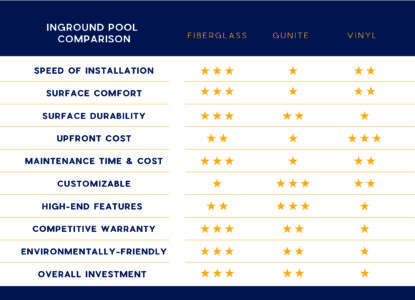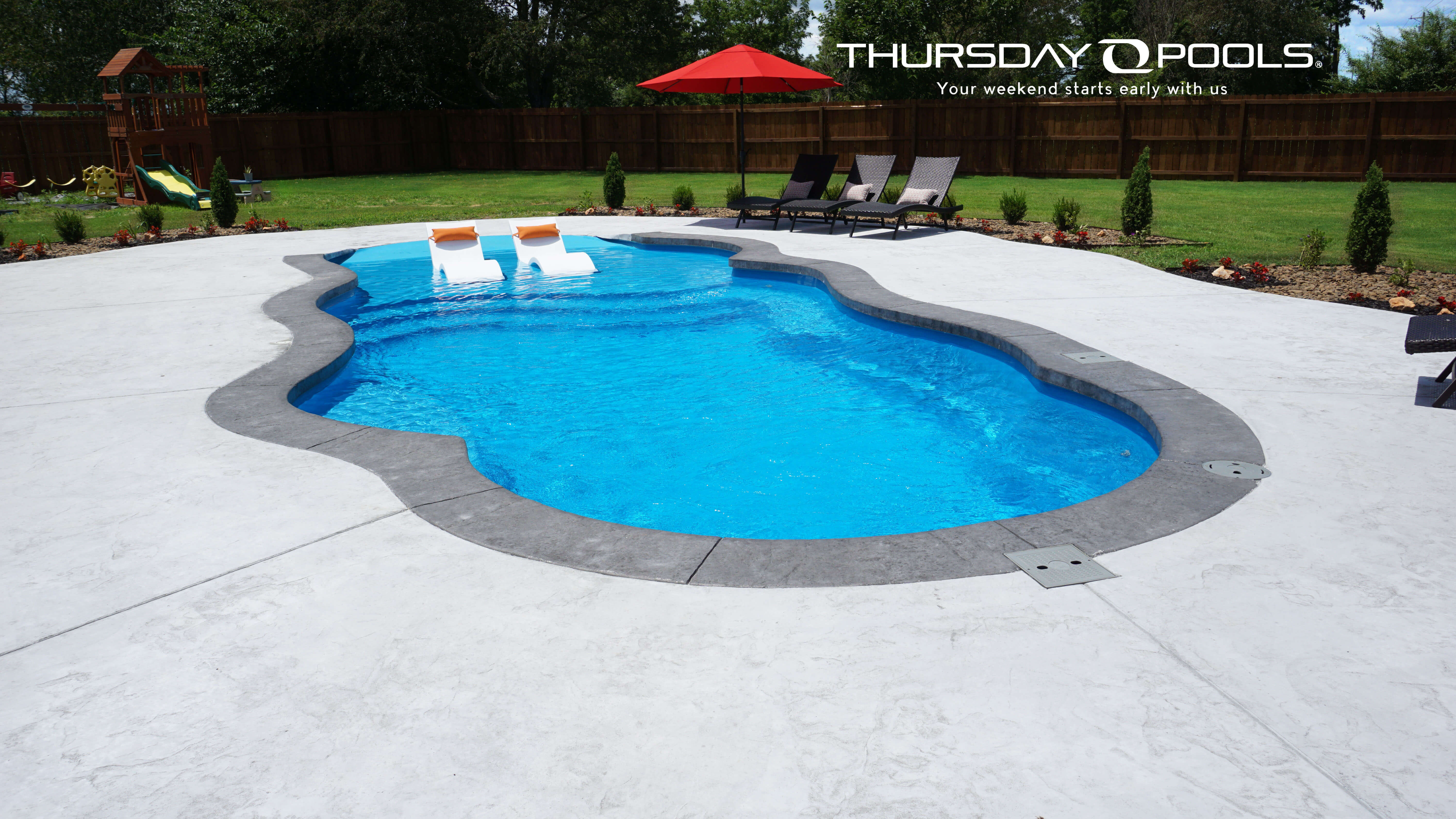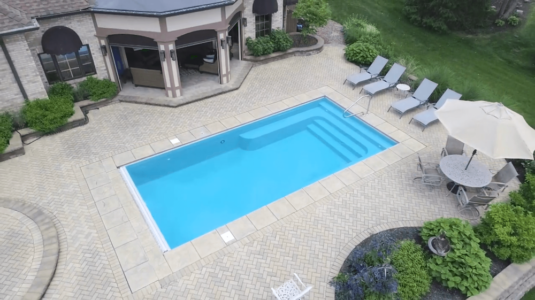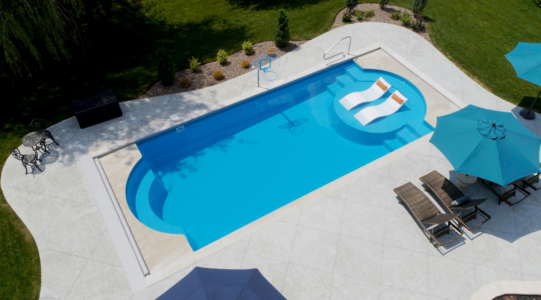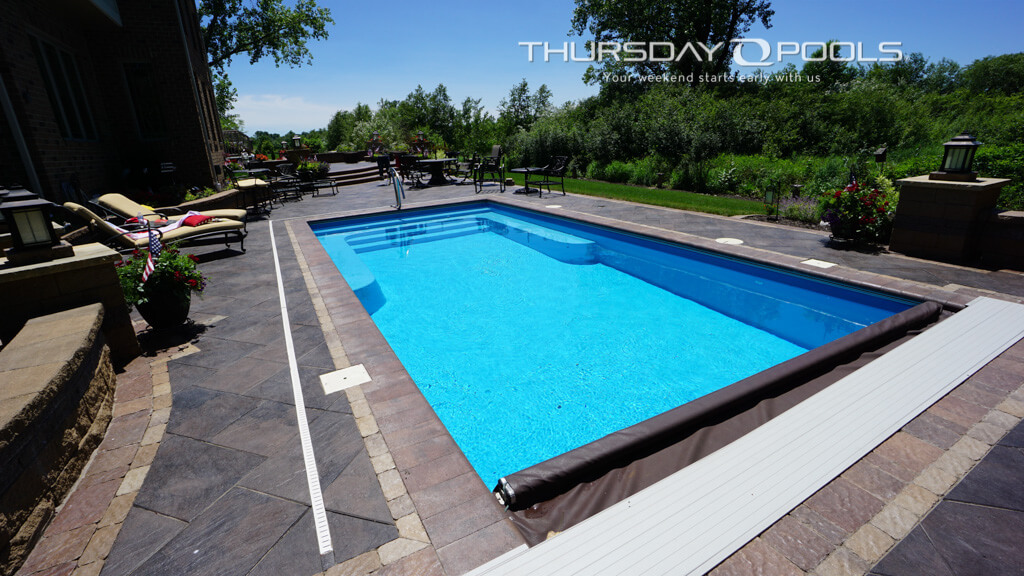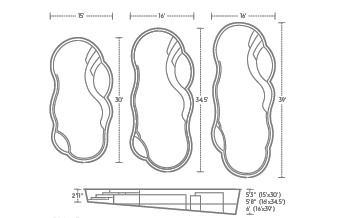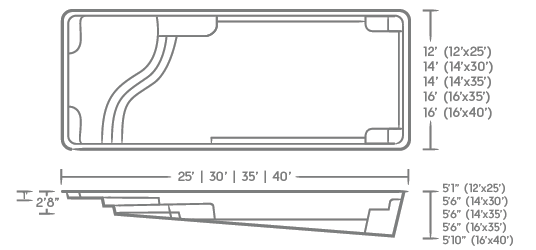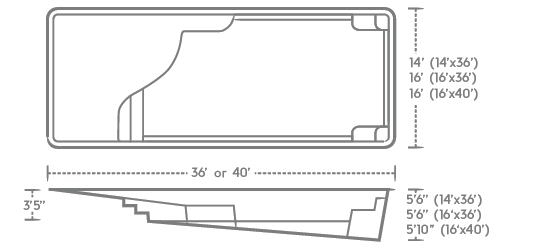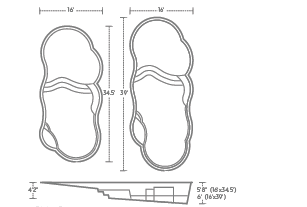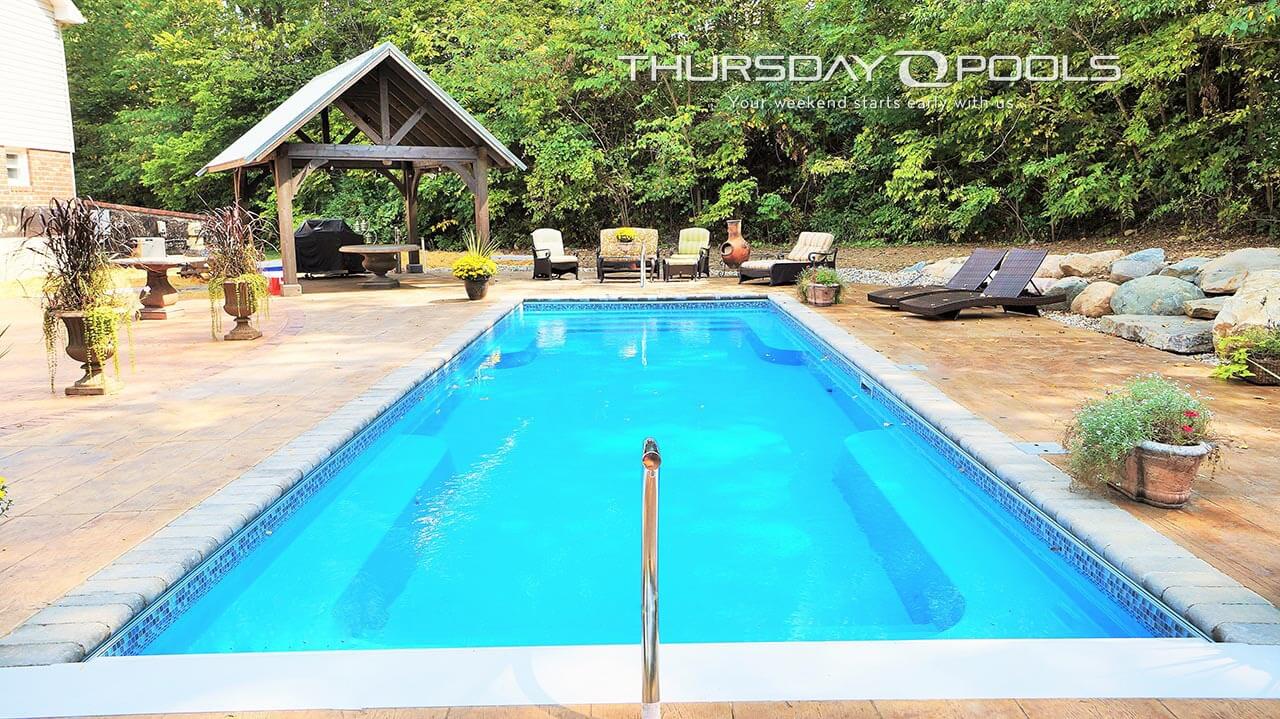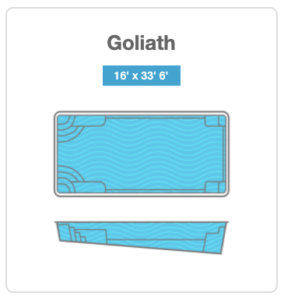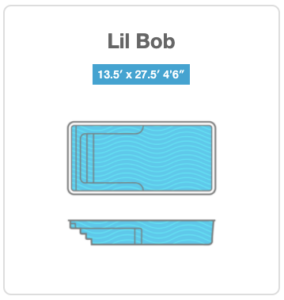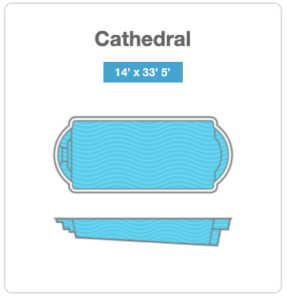Fiberglass pool cost in Maryland depends on more than just pool size. It’s shaped by everything from Chesapeake Bay shoreline conditions to suburban zoning rules outside Washington, D.C. Whether installing in the gently sloped lots of Howard County, the sandy soils of the Eastern Shore, or the dense neighborhoods around Silver Spring, understanding Maryland’s unique mix of local factors is essential for building your backyard oasis.
From Annapolis to Hagerstown and across the state, Maryland homeowners face excavation, access, and installation variables based on soil conditions, municipal codes, or design decisions. Features like pool heaters, automated safety covers, or premium decking and landscaping are popular upgrades that help stretch the swim season and enhance enjoyment, but can significantly impact your final price tag. A local Thursday Pools dealer can help ensure your vision aligns with your lifestyle and budget.
What’s the Average Cost of a Fiberglass Pool Installation in Maryland? Survey Says…
To help Maryland homeowners plan more confidently, Thursday Pools surveyed our network of independent dealers across the state in 2025. The results offer a clear snapshot of what families are investing in fiberglass pool installations from waterfront properties near Annapolis to suburban lots in Columbia and Frederick.
AVERAGE MARYLAND FIBERGLASS POOL INSTALLATION BY SIZE |
|||
|---|---|---|---|
| Pool Type | Small Fiberglass Pools | Medium Fiberglass Pools | Large Fiberglass Pools |
| Size Range | Up to 26 ft Long or 400 ft² | 26 to 34 ft Long or 400 to 600 ft² | 35 ft and Longer or 600+ ft² |
| Average Cost | $70,000 | $85,000 | $95,000 |
These averages provide a solid starting point if you’re exploring options, but the full cost depends on your yard’s unique conditions. Soil composition, slope, equipment access, and zoning regulations all play a role, along with the upgrades and custom features you choose.
Curious what a fiberglass pool might cost in your area? A local Thursday Pools dealer can help you understand the possibilities for your property and provide insights grounded in real Maryland experience.
Average Cost of Popular Pool Models Installed in Maryland
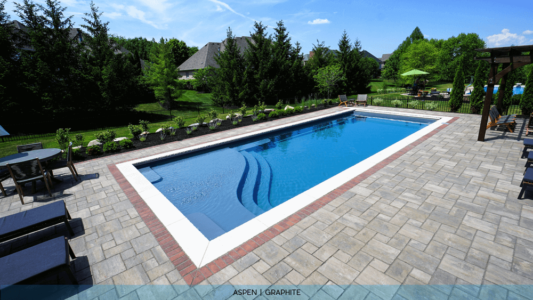
ASPEN (12’ x 25’)
The compact and classic Aspen is perfect for Maryland homeowners making the most of smaller backyard spaces, from historic row homes in Annapolis to cozy cul-de-sacs in Columbia. The pool’s design includes a built-in tanning ledge, wide entry steps, and an open swim area balancing style with practicality. Whether you’re cooling off after a Chesapeake Bay paddle or hosting weekend get-togethers with friends and neighbors, the Aspen delivers relaxation and function in a smaller footprint.
According to our 2025 survey of Thursday Pools dealers in Maryland, the average cost for a standard installation of the Aspen or other small fiberglass pool designs under 26 feet long and 400 square feet is $70,000.
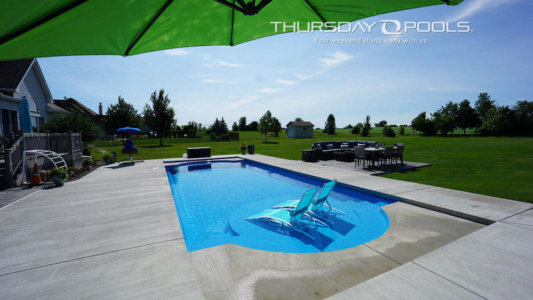
CATHEDRAL (14’ x 33’)
The Cathedral combines traditional aesthetics with thoughtful amenities, making it a natural fit for mid-size yards across Towson, Bethesda, or Ellicott City. The Cathedral has grand entry steps, ample bench seating, and a generous swim lane, providing a well-rounded space for both lounging and activity. It’s ideal for Marylanders who appreciate timeless elegance but want room to float, splash, and enjoy the outdoors.
Our survey of Maryland dealers shows the average cost for a standard installation of the Cathedral and medium fiberglass pool models, between 26 and 34 feet long or 400 to 600 square feet, is $85,000.
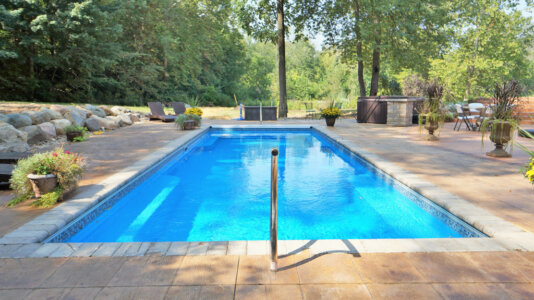
SPIRIT (16’ x 40’)
If you’re building a showstopper in Potomac or expanding a retreat near Deep Creek Lake, the Spirit offers an ultimate backyard centerpiece. This large-format pool includes a flat-bottom swim lane with built-in steps and wraparound benches for multiple conversation zones. The Spirit is great for homeowners who want to entertain, exercise, and unwind without compromise.
Based on our 2025 survey of Thursday Pools dealers in Maryland, the average cost for a standard installation of the Spirit or other large fiberglass pool models over 35 feet long and 600 square feet is $95,000.
From Rock to Ridge: How Maryland’s Landscape Shapes Your Pool Installation
Maryland’s diverse terrain can make a big difference in your fiberglass pool installation—and what it ultimately costs. In western parts of the state, rocky soil may require heavy-duty excavation equipment and extended digging time. Along the Eastern Shore, looser and sandy soil near Cambridge or Ocean City often requires reinforcement to stabilize the pool shell and prevent shifting over time. Dense clay deposits in areas such as Anne Arundel or Prince George’s County can hold water, sometimes requiring added drainage solutions to protect your pool’s structure.
Topography plays its part, too. Rolling lots near Ellicott City or sloped landscapes in parts of Montgomery County may need extra grading or retaining walls to ensure a stable and level base for your pool and patio.
Backyard accessibility is another key factor. Tight lot lines, fencing, or overhead obstructions in historic neighborhoods like Annapolis or denser developments in Silver Spring or Towson may require alternative delivery methods or crane service to maneuver your fiberglass pool shell into place. These logistical details and adjustments can add time and costs to your project budget, but are essential for a secure installation and long-term performance.
| AVERAGE ADDITIONAL YARD-RELATED EXPENSES IN MARYLAND
|
|
| Excavating Sandy Soil | $1,000 |
| Excavating Clay Soil | $900 |
| Excavating Rocky Soil | $600 |
| Above-Average Slope Requiring Extra Grading | $2,400 |
| Limited Yard Access | $5,100 |
Fortunately, local independent Thursday Pools dealers know how to navigate Maryland’s varied conditions. They’ll evaluate your yard from the start—soil type, slope, and access included—so you can budget wisely and confidently.
Maryland’s Pool Barrier Requirements: What Homeowners Need to Know
Understanding the state’s safety regulations is crucial when planning a fiberglass pool installation in Maryland. The state follows the International Swimming Pool and Spa Code (ISPSC) with amendments, forming the Maryland Swimming Pool and Spa Code. This code mandates enclosing any residential pools deeper than 24 inches with a barrier at least 48 inches high. There are also specific requirements for gate functionality and fencing material spacing to prevent unauthorized access.
Many local jurisdictions, however, impose additional and stricter standards. Montgomery County, for example, requires securely anchored pool enclosures at least 5 feet tall. Gates must be self-closing and self-latching, with latches at least 4 feet above ground.
Anne Arundel County maintains the 4-foot minimum height and specifies that gaps under the fence cannot exceed 2 inches, while openings between pickets must be no more than 4 inches wide. Harford County adds that the barrier must be at least 20 inches from the pool’s edge, while Carroll County requires temporary safety fencing during construction and the filing of a pool enclosure affidavit before adding water to the pool.
Given these variations, consulting with your local municipality or a knowledgeable Thursday Pools dealer is essential to ensure compliance with all applicable regulations. Proper planning will help avoid unexpected costs and provide a smooth installation process.
According to our 2025 survey of Maryland dealers, the average cost for a 300-linear-foot pool fence is approximately $15,600.
Enhance Your Maryland Pool with These Popular Add-Ons
Customizing your fiberglass pool allows you to create a backyard oasis that aligns with your lifestyle and preferences. Whether aiming for extended usability, simplified maintenance, or added luxury, Maryland homeowners favor the following features. Our 2025 dealer survey shows the trending add-ons and their average costs in the state.
Comfort and Convenience
Pool Heater Average Cost in Maryland: $5,300
Extend your swimming season by maintaining a comfortable water temperature during cooler months.
Automatic Pool Cleaning System Average Cost in Maryland: $3,300
Minimize manual cleaning with a system that automatically removes debris and maintains water clarity.
Pool Automation and Smart Controls Average Cost in Maryland: $5,100
Control lighting, temperature, and filtration settings remotely via your smartphone or tablet for added convenience.
Safety and Protection
Automatic Pool Cover Average Cost in Maryland: $16,000
Enhance safety, reduce evaporation, and keep debris out with a cover that operates at the push of a button.
Manual Safety Pool Cover Average Cost in Maryland: $3,700
Provide a cost-effective safety solution that also helps maintain water cleanliness.
Recreation and Relaxation
Add-On Spa Average Cost in Maryland: $16,000
Add a luxurious spa feature alongside your pool for therapeutic relaxation and enjoyment.
Simple Pool Slide Average Cost in Maryland: $8,100
Introduce fun for all ages with a straightforward slide design.
Deluxe Pool Slide Average Cost in Maryland: $10,100
Opt for a more elaborate slide to enhance your pool area’s excitement and aesthetic appeal.
Diving Board (Type 1 Diving Pools Only) Average Cost in Maryland: $3,700
Install a diving board only if your pool meets the specific depth and slope requirements for Type 1 diving pools.
*Thursday Pools strongly advises against including diving boards and slides due to safety concerns. A licensed professional must review any such additions to ensure compliance with local building codes, safety regulations, and manufacturer guidelines. Not all fiberglass pool models are suitable for diving or slide use. Homeowners and installers are responsible for proper installation and usage. Always prioritize safety and consult a qualified expert before adding diving or sliding features to your pool.
Aesthetic Enhancements
Specialty Waterline Tile Average Cost in Maryland: $7,000
Enhance your pool’s visual appeal with decorative tiles that add a personalized touch.
LED Pool Lighting Average Cost in Maryland: $1,457 per light
Illuminate your pool with energy-efficient LED lights in various colors to set the desired mood.
Deck Jets Average Cost in Maryland: $700 per jet
Add dynamic water features that create graceful arcs, creating a tranquil atmosphere.
Bubblers Average Cost in Maryland: $700 per bubbler
Introduce gentle water movement and sound, perfect for shallow areas or tanning ledges.
Cascading Waterfalls Average Cost in Maryland: $5,000
Create a resort-like ambiance with waterfalls offering visual beauty and soothing sounds.
Decking and Landscaping
Poured Concrete Patio (Approx. 1,200 sq. ft.) Average Cost in Maryland: $16,000
Choose a durable and low-maintenance option that withstands Maryland’s seasonal changes.
Paver Patio (Approx. 1,200 sq. ft.) Average Cost in Maryland: $16,000
Opt for pavers to add texture and design versatility to your poolside area.
Surrounding Landscaping Average Cost in Maryland: $8,800
Enhance your pool environment with thoughtfully selected plants and features complementing your outdoor space.
Build a Maryland Backyard You’ll Love
From sun-soaked weekends on the Eastern Shore to evening gatherings in the Baltimore or Silver Spring suburbs, a fiberglass pool can turn your Maryland yard into a space for connection, celebration, and everyday joy. With thoughtful planning and support from local experts, you can bring your vision to life with clarity and confidence.
Start with the Thursday Pools Pool Cost Calculator to explore realistic pricing based on your design preferences. Then check out our Pool Selector Tool to find shapes, styles, and features that match your lifestyle and goals.
When you’re ready for personalized guidance, contact an independent Thursday Pools dealer near you. They’ll help you navigate Maryland’s terrain, codes, and climate so your pool stays on budget, is beautiful, and built to last.
Get Your Personalized Estimate
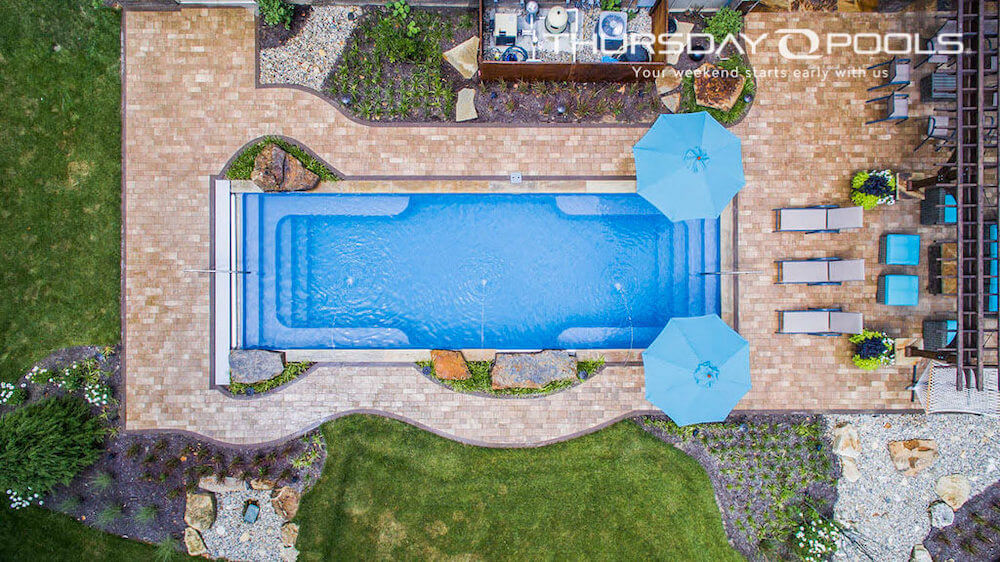
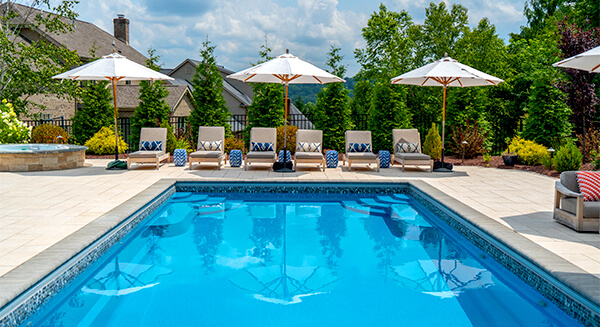
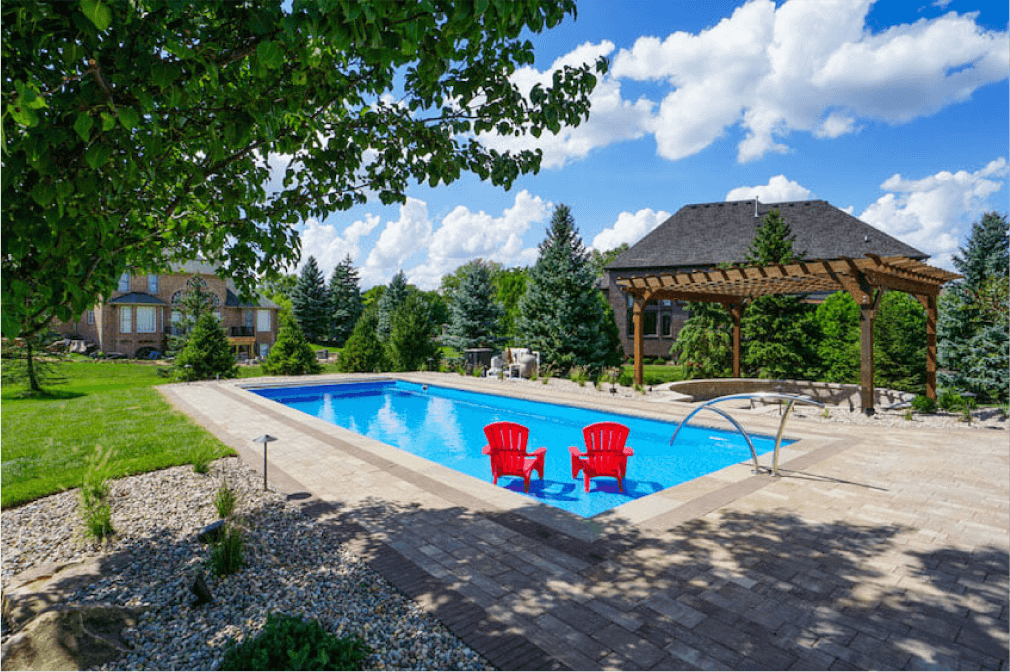
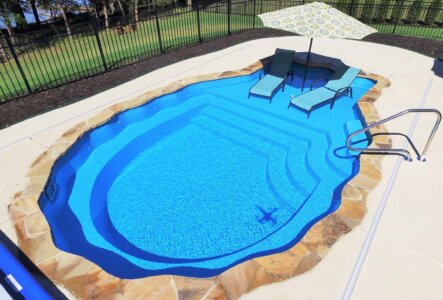
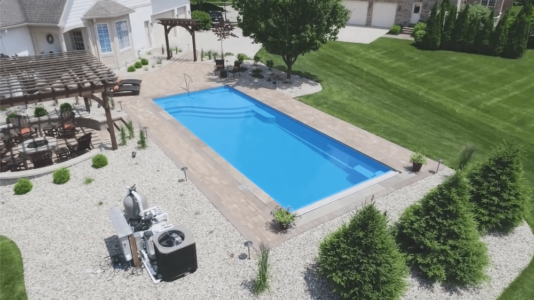
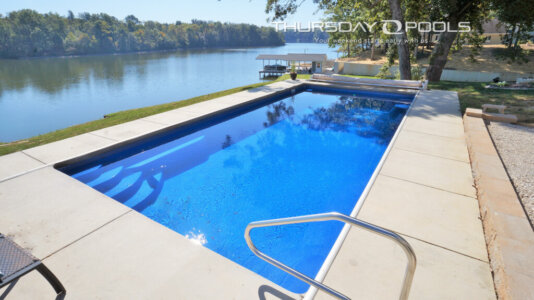
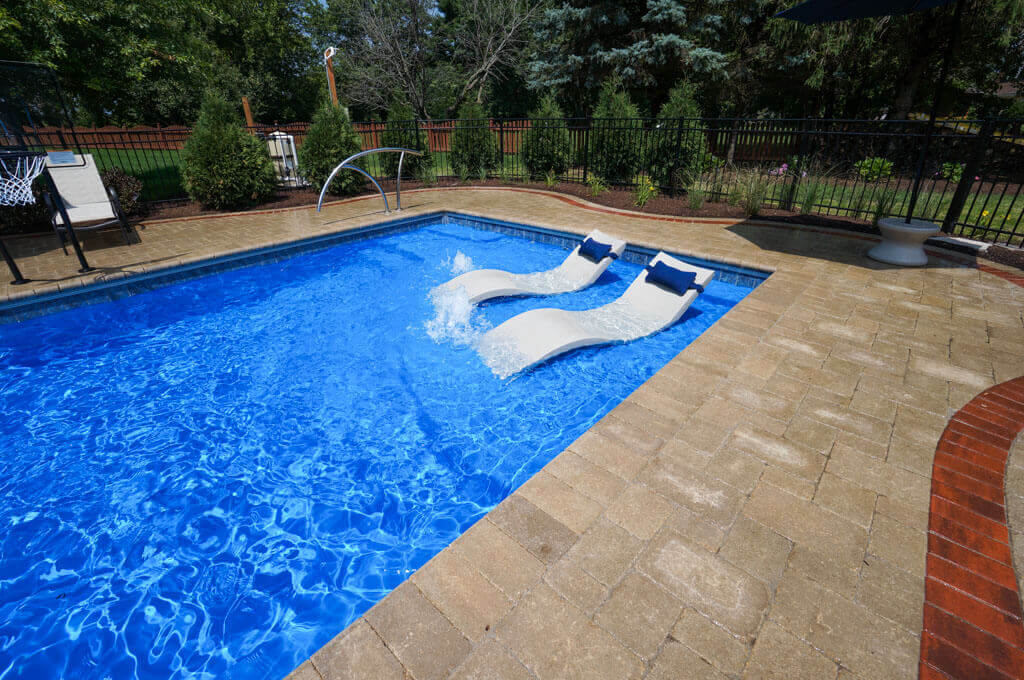
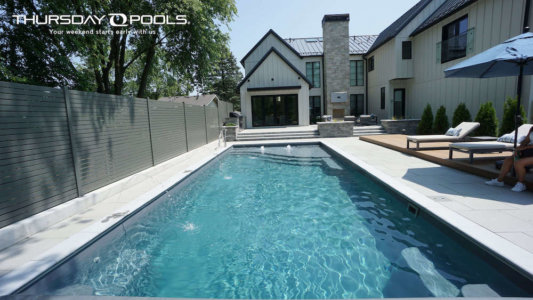
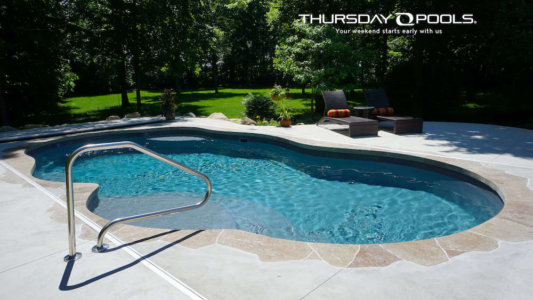
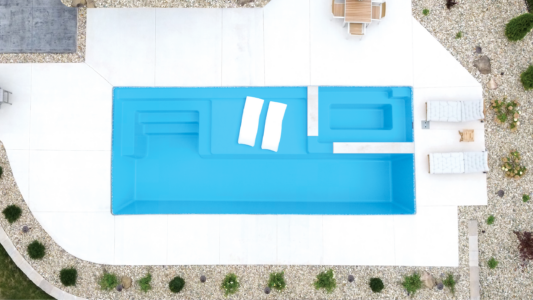
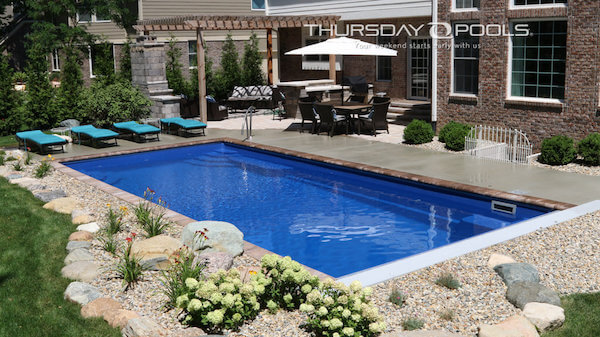
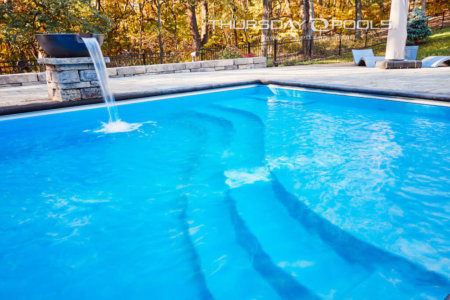
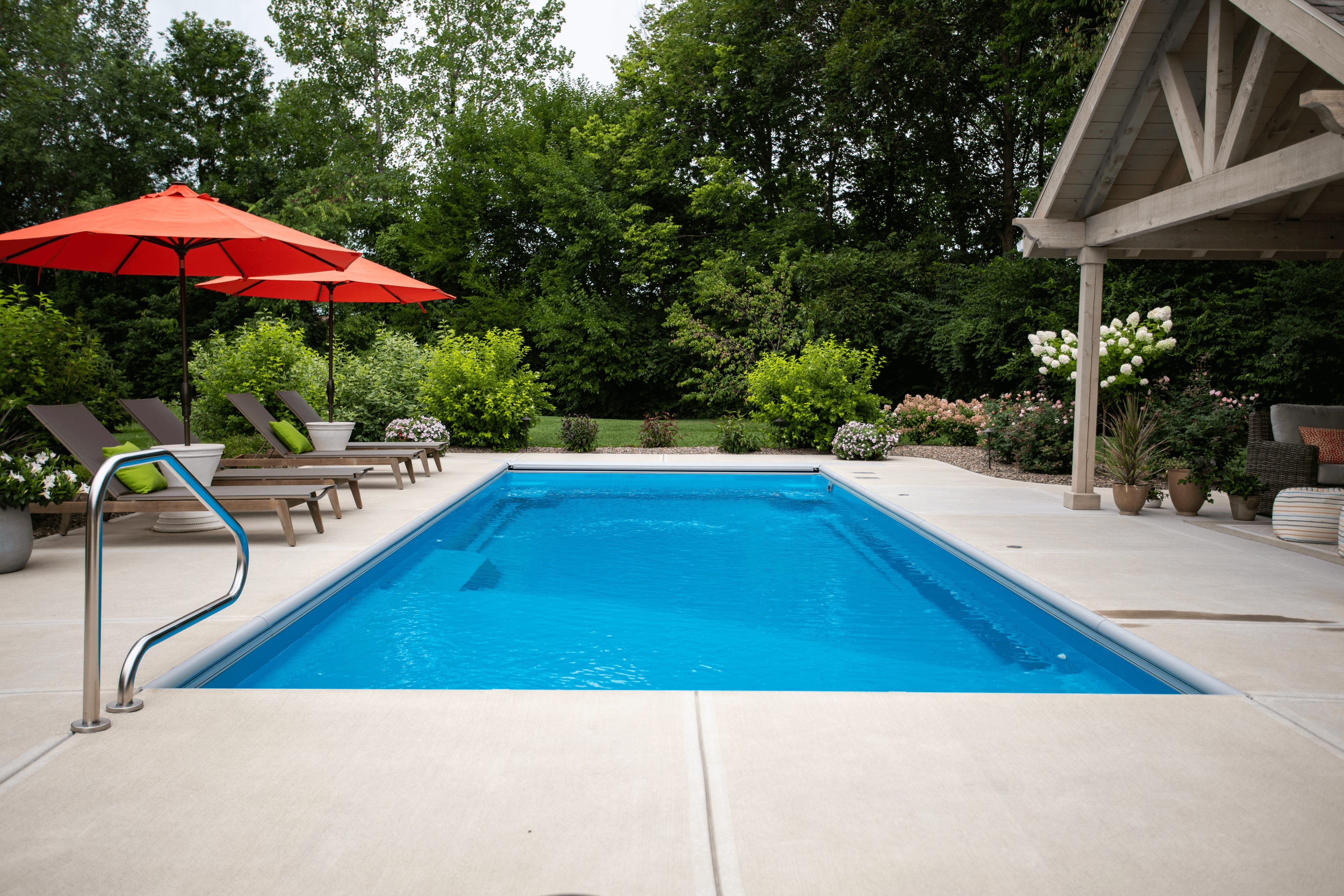
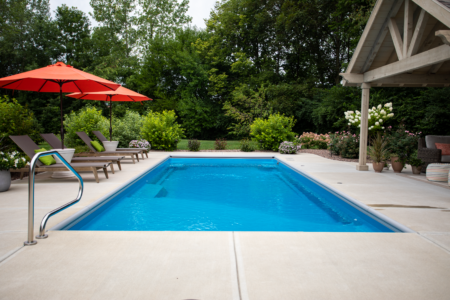 Association Fees or Permits
Association Fees or Permits